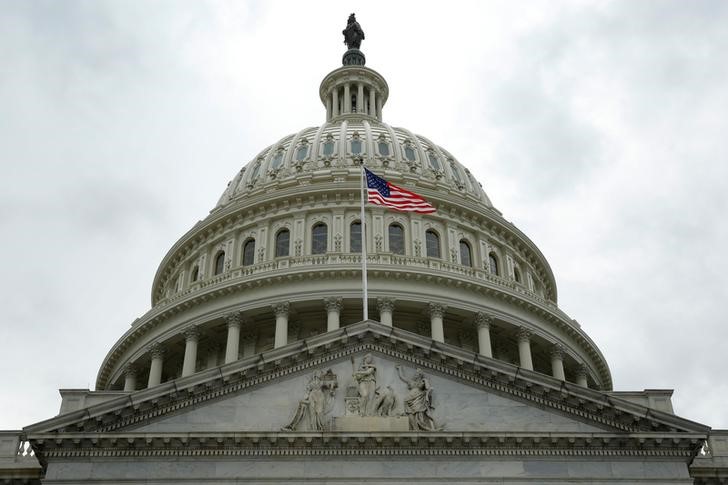(Bloomberg) -- Democrats in Congress introduced a bill Tuesday that would cement the Federal Reserve’s role in fighting economic inequality.
The Federal Reserve Racial and Economic Equity Act would amend the Federal Reserve Act and mandate that the U.S. central bank specifically work to decrease and eliminate gaps in employment, wages, wealth and access to credit. It would also require the central bank to report on racial disparities and how it’s working to decrease them in its biannual reports to Congress and in the Fed chair’s accompanying testimony.
Although the bill has little chance of passing through Congress while the Senate is controlled by Republicans, its introduction shows that momentum is building to get the country’s century-old central bank to more specifically focus on creating an economy that is equal for all Americans. A November win for Joe Biden and his Democrats that gave them control of the White house and both chambers of Congress could also change the calculus.
“Building on the great work of civil rights leader Coretta Scott King and others who led the way for the adoption of the Fed’s full employment mandate, the Federal Reserve Racial and Economic Equity Act creates a new racial justice mission at the Fed to eliminate racial and economic disparities in all of its work,” Representative Maxine Waters (NYSE:WAT) said in a statement.
The bill was introduced by Waters, chair of the House Financial Services Committee, and Senators Elizabeth Warren and Kirsten Gillibrand and was signed on by 17 other Democrats.
‘Disparate Distributional Outcomes’
The Biden campaign called for a similar proposal last week. Economists Jared Bernstein and Janelle Jones have called on the Fed to target the Black unemployment rate when it makes policy decisions in order to narrow the gap between White and Black unemployment.
The difference between the rates has been persistently high, with the Black rate often more than double the White one. Black families also have one-tenth the wealth of White families, indicating systemic problems in the economy that continue to hamper upward mobility and opportunity for millions of Americans.
Fed Chair Jerome Powell said in May that the Fed’s policies do not exacerbate inequality. He said last week that the central bank doesn’t have the tools to address “disparate distributional outcomes” and indicated that fiscal policies may be better suited to address these problems in the economy. He has, however, said that the Fed has learned that it can run the economy hotter than thought without sparking unwanted inflation, and as a result the benefits of a tight labor market can be extended to poorer and minority communities.
©2020 Bloomberg L.P.
